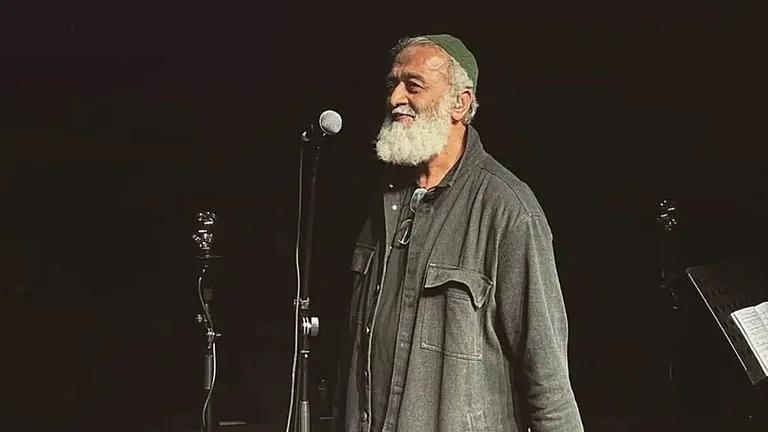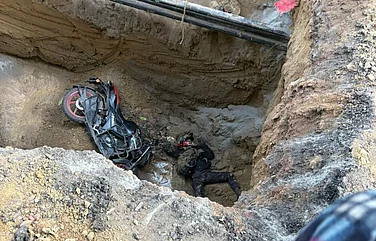Despite the relatively calm environment and repeated appeals by both Chief Minister Neiphiu Rio and theNational Socialist Council of Nagalim - Isak-Muivah (NSCN-IM), Nagaland was declared a 'disturbed area'for a further period of one year, commencing July 22, 2003, under Section 3 of the Armed Forces (Assam andManipur) Special Powers (Amendment) Act, 1972, by the union government. According to the officialnotification, the whole state is in a dangerous condition, and the use of armed forces in aid of civil poweris necessary. Opinions differ on the issue, but the declaration was certainly a setback to the Nephiu Rio ledDemocratic Alliance of Nagaland (DAN) government and the NSCN-IM leadership.
In a complete U-turn on his Government's position, addressing the Nagaland Assembly, State Home Minister T.M.Lotha justified the disturbed area notification on the grounds that, since the DAN government came to power onMarch 2003, and up to July 18, some 83 persons had been killed in 'insurgency related incidents or through criminalactivities' in the state. There is a certain fudging of data here, and according to data compiled by theSouth Asia Terrorism Portal, between January and August 10 this year, the total number of insurgency relateddeaths stood at just 17, including 13 terrorists, three security force personnel and a lone civilian inNagaland.
It is only by clubbing 'criminal activities' with the numbers relating to insurgency that Lotha arrives atthe relatively alarming figure of 83 - and criminal (as opposed to terrorist or insurgent) violence has neverbeen basis for the imposition or extension of the 'disturbed area' status under the Special Powers Act. Thereis, of course, a very thin line between criminal and terrorist acts in the state, with the insurgents runningwidespread networks of extortion and abduction for ransom, but the fact is that insurgency related violencehas substantially decreased in Nagaland since the NSCN-IM leadership's New Delhi sojourn in January 2003,followed by the State Legislative Assembly elections and subsequent confidence building measures taken up bothby the union and state government with the rebel outfits.
Earlier, Chief Minister Neiphiu Rio had asserted, during his March 17 meeting with the Prime Minister in NewDelhi immediately after his assumption of power, that the two warring factions of the NSCN -- Isak-Muivahfaction (NSCN-IM) and the Khaplang faction (NSCN-K) -- were strictly observing the ceasefire 'groundrules'. Rio's Government is believed to have collusive ties with the NSCN-IM and was overtly trying toengineer a reconciliation between the NSCN-IM and the NSCN-K to take the current 'peace process' forward.There was, consequently, a very significant turnaround after the union government's decision on the extensionof the Special Powers Act, which has been continuously enforced in the State since 1995. Thus, Home MinisterLotha stated during the Budget Session of the Assembly that there had been 'many instances' of violation ofthe ceasefire ground rules by the underground factions, while accepting the oppositions claim that the law andorder situation has deteriorated in the State.
The truth is, there is a continuous record of ceasefire violations by the NSCN factions, who run extensiveextortion and abduction operations, and are often involved in internecine violence. The NSCN-K, for instance,was reported on January 7, 2003, to have been providing shelter and training to at least seven terroristgroups of the Northeast at its bases in Myanmar. During the Legislative Assembly elections in February 2003,there had been repeated reports of gun-wielding NSCN-IM cadres moving freely outside their 'designated camps'in violation of the ground rules.
On Election Day itself, Security Force (SF) personnel shot dead an NSCN-IM cadre and arrested another two,recovering an AK-47 rifle, a 9mm pistol and two country-made revolvers, in Kohima. Again on April 24, anothermajor violation came to limelight when SF personnel arrested three senior NSCN-IM cadres from the insurgentgroup's 'town command headquarters' at Khushiabli, outside its designated camp at Seothekemia in Dimapurdistrict, along with a huge cache of arms and ammunition. Armed cadres of both the factions are reported to becurrently camping in and around Longleng subdivision in Tuensang district, creating fear among localinhabitants.
Contesting Home Minister Lotha's claims, however, the NSCN-IM leadership, on July 31, 2003, vehemently deniedthe accusations, claiming that the ceasefire ground rules were being followed strictly. The increasingincidence of extortion has, nevertheless, been confirmed, as the group responded to such charges by declaringthat this was the collection of "legal taxes". Similarly, the group claimed that factional clashesdid not come under the purview of the ceasefire ground rules. Shortly after this war of words, twoNSCN-Khaplang terrorists were abducted and later killed in the outskirts of Kohima on August 2, 2003, inrenewed factional clashes.
During the Bangkok meeting on July 16-18, 2003, NSCN-IM leader Thuingaleng Muivah had strongly conveyed to theUnion Government's interlocutor, K. Padmanabhaiah, that Nagaland's disturbed area status should not beextended. The group has been demanding the withdrawal of the legislation ever since the Naga peace processbegan in 1997. This was the only remaining condition set by the NSCN-IM leadership for holding talks in Indiain November 2003. Though initial expectations had been optimistic, eventually, the NSCN-IM had be satisfiedwith no more than an extension of the ceasefire with the Security Forces in Nagaland for another year beyondJuly 31, 2003. NSCN-IM spokesman, Kraibo Chawang, also spoke of a 'dirty trick' played by New Delhi, and theConvener of the NSCN-IM's ceasefire monitoring group, Phungthing Shimrang, expressed doubt over the 'realintention' of the Union Government in imposing 'Martial Law', even as the ceasefire was extended.
The extension of the Disturbed Area Act has aroused widespread opposition in a wide spectrum of politicalopinion in the state, undermining confidence in the possibility of any dramatic success in the ongoing 'peaceprocess'. Secretary General Chubatemjen of the Nagaland People's Front (NPF), the major constituent party ofthe DAN Government, issued a statement after a joint meeting of the NPF working committee, declaring that theextension of the Disturbed Areas Act would not help in solving the vexed Naga problem.
Even the subdued Naga National Council (NNC) has threatened that it might be forced to 'take up arms, ifthe situation arises'. NNC General Secretary Vizosielhou Nagi was critical of both the ceasefire and the DAA,claiming that the Union Government was playing the factions against each other to undermine theirorganizational strengths. He also speculated that nothing concrete would come out of the current peaceprocess, and the ceasefire would continue without any tangible results.
The NSCN-IM's bete noir, the Khapalng faction of the NSCN, was also critical about the extension of theDisturbed Areas Act, and was skeptical about the sincerity of both the union and the state Governments. TheNSCN-K also charged the NSCN-IM of 'conniving' with the Union Ministry of Home Affairs and patronizing theUnited Naga Council to push for a settlement that would 'balkanize the political map or territory of the Nagas'by pressing for a South Nagaland State, comprising the four Naga dominated districts of the Manipur, withinthe framework of Indian Constitution.
Evidently, the presence and activities of insurgents from both the NSCN factions remain a cause of seriousconcern in Nagaland - as well as in some areas of neighboring states, particularly Manipur and ArunachalPradesh. It is, however, equally clear that the Disturbed Areas status has also become part of the politicalcurrency in the negotiating process between the union government and the NSCN-IM, and that the decisionsrelating to its extension can no longer be expected to be based on objective assessments of the situation onthe ground.
Animesh Roul is Research Associate, Institute for Conflict Management. Courtesy, the South AsiaIntelligence Review of the South Asia Terrorism Portal






















